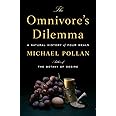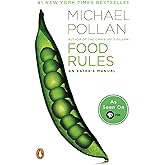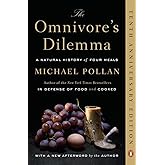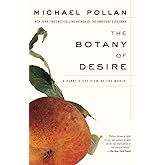
Amazon Prime Free Trial
FREE Delivery is available to Prime members. To join, select "Try Amazon Prime and start saving today with FREE Delivery" below the Add to Cart button and confirm your Prime free trial.
Amazon Prime members enjoy:- Cardmembers earn 5% Back at Amazon.com with a Prime Credit Card.
- Unlimited FREE Prime delivery
- Streaming of thousands of movies and TV shows with limited ads on Prime Video.
- A Kindle book to borrow for free each month - with no due dates
- Listen to over 2 million songs and hundreds of playlists
Important: Your credit card will NOT be charged when you start your free trial or if you cancel during the trial period. If you're happy with Amazon Prime, do nothing. At the end of the free trial, your membership will automatically upgrade to a monthly membership.
Buy new:
-31% $17.22$17.22
Ships from: Amazon Sold by: KyncStore
Save with Used - Good
$8.09$8.09
Ships from: Amazon Sold by: Cheburashka's Store

Download the free Kindle app and start reading Kindle books instantly on your smartphone, tablet, or computer - no Kindle device required.
Read instantly on your browser with Kindle for Web.
Using your mobile phone camera - scan the code below and download the Kindle app.

Image Unavailable
Color:
-

-
-
- To view this video download Flash Player


 Audible sample
Audible sample In Defense of Food: An Eater's Manifesto Hardcover – January 1, 2008
Purchase options and add-ons
Food. There's plenty of it around, and we all love to eat it. So why should anyone need to defend it?
Because in the so-called Western diet, food has been replaced by nutrients, and common sense by confusion--most of what we’re consuming today is longer the product of nature but of food science. The result is what Michael Pollan calls the American Paradox: The more we worry about nutrition, the less healthy we see to become. With In Defense of Food, Pollan proposes a new (and very old) answer to the question of what we should eat that comes down to seven simple but liberating words: "Eat food. Not too much. Mostly plants." Pollan’s bracing and eloquent manifesto shows us how we can start making thoughtful food choices that will enrich our lives, enlarge our sense of what it means to be healthy, and bring pleasure back to eating.
- Print length256 pages
- LanguageEnglish
- PublisherPenguin Press
- Publication dateJanuary 1, 2008
- Dimensions5.7 x 0.86 x 8.5 inches
- ISBN-101594201455
- ISBN-13978-1594201455
Book recommendations, author interviews, editors' picks, and more. Read it now.
Frequently bought together
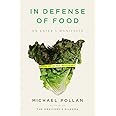
Customers who viewed this item also viewed
 DON’T EAT ANYTHING YOUR GREAT GRANDMOTHER WOULDN’T RECOGNIZE AS FOOD.Highlighted by 2,874 Kindle readers
DON’T EAT ANYTHING YOUR GREAT GRANDMOTHER WOULDN’T RECOGNIZE AS FOOD.Highlighted by 2,874 Kindle readers EAT MORE LIKE THE FRENCH. OR THE ITALIANS. OR THE JAPANESE. OR THE INDIANS. OR THE GREEKS.Highlighted by 2,088 Kindle readers
EAT MORE LIKE THE FRENCH. OR THE ITALIANS. OR THE JAPANESE. OR THE INDIANS. OR THE GREEKS.Highlighted by 2,088 Kindle readers Don’t eat anything incapable of rotting is another personal policy you might consider adopting.Highlighted by 1,568 Kindle readers
Don’t eat anything incapable of rotting is another personal policy you might consider adopting.Highlighted by 1,568 Kindle readers
Editorial Reviews
Amazon.com Review
From Publishers Weekly
Copyright © Reed Business Information, a division of Reed Elsevier Inc. All rights reserved.
From Bookmarks Magazine
Copyright © 2004 Phillips & Nelson Media, Inc.
From Booklist
Review
"In this slim, remarkable volume, Pollan builds a convincing case not only against that steak dinner but against the entire Western diet." —The Washington Post
"A tough, witty, cogent rebuttal to the proposition that food can be reduced to its nutritional components without the loss of something essential . . . [a] lively, invaluable book." —Janet Maslin, The New York Times
"What should I eat for dinner tonight? Here is Pollan's brilliant, succinct and nuanced answer to this question: 'Eat food. Not too much. Mostly plants.'" —Pittsburgh Post-Gazette
"In Defense of Food is written with Pollan's customary bite, ringing clarity and brilliance at connecting the dots." —The Seattle Times
"This is an important book, short but pithy, and, like the word 'food,' not simple at all." —New York Post
"With his lucid style and innovative research, Pollan deserves his reputation as one of the most respectable voices in the modern debate about food." —The Financial Times
About the Author
A longtime contributing writer to The New York Times Magazine, Pollan is also the Knight Professor of Journalism at UC Berkeley. His writing on food and agriculture has won numerous awards, including the Reuters/World Conservation Union Global Award in Environmental Journalism, the James Beard Award, and the Genesis Award from the American Humane Association.
From The Washington Post
Reviewed by Jane Black
In his 2006 blockbuster, The Omnivore's Dilemma, Michael Pollan gave voice to Americans' deep anxiety about food: What should we eat? Where does our food come from? And, most important, why does it take an investigative journalist to answer what should be a relatively simple question?
In the hundreds of interviews Pollan gave following the book's publication, the question everyone, including me, asked him was: What do you eat? It was both a sincere attempt to elicit a commonsense prescription and, when it came from cynical East Coast journalists, a thinly veiled attempt to trap the author. "Oh! So he shops at farmers markets," we snipped enviously to one another. "Well, easy for him out there in Berkeley where they feast on peaches and cream in February! What about the rest of us?"
In Defense of Food is Pollan's answer: "Eat food. Not too much. Mostly plants."
For some, that instruction will seem simple, even obvious. (It will seem especially so to those who read Pollan's lengthy essay on the same topic in the New York Times magazine last year.) But for most people, those seven little words are a declaration of war on the all-American dinner. Goodbye, 12-ounce steak. Instead, how about three ounces of wild-caught salmon served with roasted butternut squash and a heap of sautéed kale? For many, following the rules may not be so simple after all.
Yet in this slim, remarkable volume, Pollan builds a convincing case not only against that steak dinner but against the entire Western diet. Over the last half-century, Pollan argues, real food has started to disappear, replaced by processed foods designed to include nutrients. Those component parts, he says, are understood only by scientists and exploited by food marketers who thrive on introducing new products that hawk fiber, omega-3 fatty acids or whatever else happens to be in vogue.
Pollan calls it the age of "nutritionism," an era when nutrients have been elevated to ideology, resulting in epidemic rates of obesity, disease and orthorexia, a not yet official name for an unhealthy obsession with healthy eating. "What we know is that people who eat the way we do in the West today suffer substantially higher rates of cancer, cardiovascular diseases, diabetes, and obesity than people eating any number of different traditional diets," he writes. "When people come to the West and adopt our way of eating, these diseases soon follow."
Part of Pollan's answer to improving our health is going back to traditional foods and ways of eating: Eat leaves, not seeds. Steer clear of any processed food with a health claim. And for goodness sake, don't eat anything your grandmother wouldn't recognize as food.
But equally important is changing the way we relate to food. Pollan argues that we've traded in our food culture -- a.k.a. eating what Mom says to eat -- for nutritionism, which puts experts in charge and makes the whole question of what to eat so confusing in the first place. Indeed, Pollan makes a strong case that the "French paradox" -- the way the French stay thin while gobbling triple crème cheese and foie gras -- isn't a paradox at all. The French have a different relationship with food. They eat small portions, don't come back for seconds and spend considerably more time enjoying their food -- an eminently sensible approach.
In Pollan's mind, trading quantity for quality and artificial nutrients for foods that give pleasure is the first step in redefining the way we think about food. The rules here: Pay more, eat less. Eat meals, not snacks. Cook your own meals and, if you can, plant a garden.
Each of the rules is well supported -- and only occasionally with the scientific mumbo-jumbo that Pollan disparages. But what makes Pollan's latest so engrossing is his tone: curious and patient as he explains the flaws in epidemiological studies that have buttressed nutritionism for 30 years, and entirely without condescension as he offers those prescriptions Americans so desperately crave.
That's no easy feat in a book of this kind. What should we eat? The answer is here. Now we just have to see if Americans are willing to follow good advice.
Copyright 2008, The Washington Post. All Rights Reserved.
Product details
- Publisher : Penguin Press; 1st edition (January 1, 2008)
- Language : English
- Hardcover : 256 pages
- ISBN-10 : 1594201455
- ISBN-13 : 978-1594201455
- Item Weight : 13.2 ounces
- Dimensions : 5.7 x 0.86 x 8.5 inches
- Best Sellers Rank: #123,949 in Books (See Top 100 in Books)
- #697 in Nutrition (Books)
- #1,276 in Other Diet Books
- Customer Reviews:
About the author

Michael Pollan is the author of seven previous books, including Cooked, Food Rules, In Defense of Food, The Omnivore's Dilemma and The Botany of Desire, all of which were New York Times bestsellers. A longtime contributor to the New York Times Magazine, he also teaches writing at Harvard and the University of California, Berkeley. In 2010, TIME magazine named him one of the one hundred most influential people in the world.
Customer reviews
Customer Reviews, including Product Star Ratings help customers to learn more about the product and decide whether it is the right product for them.
To calculate the overall star rating and percentage breakdown by star, we don’t use a simple average. Instead, our system considers things like how recent a review is and if the reviewer bought the item on Amazon. It also analyzed reviews to verify trustworthiness.
Learn more how customers reviews work on AmazonCustomers say
Customers find the book informative and thought-provoking. They describe the writing as well-written and easy to read. The book offers a comprehensive view of food, describing it as rich in natural, whole foods and offering rules for eating well. Readers appreciate the straightforward and concise style. They find the book engaging and exciting, with an interesting historical context. Overall, customers consider it a worthwhile read and worth the price.
AI-generated from the text of customer reviews
Customers find the book informative and inspirational. They appreciate the thorough research and practical advice provided in it. The author breaks down various theories about why Americans have poor diets, and his research is thorough.
"..." and to those that have, I recommend this book as an inspirational updated refresher course." Read more
"Pollan has written a far-reaching, easy to read and very informative book that breaks through the nonsense of reductionist nutrition or what he..." Read more
"...However, for what it says about the profession, it's a book every food scientist should read." Read more
"...a diet book, Pollan imparts nutrition common sense as he breaks down various theories as to why American's have become so fat...." Read more
Customers find the book easy to read, well-written, and entertaining. They describe it as a straightforward, common-sense guide on eating habits. The writing style is clear and relatable.
"...Gone are the stories, the humor, the horror, the amusing dialogue, and the semitravelogue--all that was, for me at least, very delightful--but it..." Read more
"Pollan has written a far-reaching, easy to read and very informative book that breaks through the nonsense of reductionist nutrition or what he..." Read more
"...The book certainly is a manifesto, and an upper-middle class one at that...." Read more
"The book? It was terrific. If you eat, you should read it. Period...." Read more
Customers appreciate the book's food quality. They find it offers fresh perspectives on food and eating, with rules for eating well that make a lot of sense. The book covers the theory, history, and science of food.
"...noticeable difference in the availability of healthier, more naturally produced vegetables, fruits, meats, and fish in the area where I live...." Read more
"...Eat whole foods, traditional foods, avoid processed foods, buy from local producers, eat green (leaves) and eat foods (animals) that eat green...." Read more
"...Not quite a diet book, Pollan imparts nutrition common sense as he breaks down various theories as to why American's have become so fat...." Read more
"...The fact is, this book will make you completely rethink your relationship to food and diet...." Read more
Customers find the book straightforward and logical. They appreciate its clear explanations and simple rules of thumb. The content is described as down-to-earth and common sense.
"...It is a small book, easy and quick to read. I finished it in one enjoyable afternoon...." Read more
"...Sounds simple and it is. Something simple for a complex problem; that's refreshing! But, it's not easy...." Read more
"...Pretty common sense stuff here, yet it's astonishing how revolutionary these insights seem to be in today's fast food culture...." Read more
"...This is easy to do, and cooking isn't as hard or as time-consuming as modern busy people are led to believe; it's just a different way of thinking...." Read more
Customers find the book entertaining, informative, and thought-provoking. They enjoy reading it with enthusiasm and excitement. Readers mention it makes them laugh or smile.
"...However, if you want a highly entertaining, informative and thought provoking book which can help you effect positive change in your life, pick this..." Read more
"...Mr. Pollan does a fine job of both giving the facts and making the read entertaining...." Read more
"Michael Pollan’s "In Defense of Food: An Eater's Manifesto" is a compelling and eye-opening book that has significantly transformed the way I..." Read more
"...is a 4 1/2-star book, but I found the material to be so useful and compelling that I round up the rating to a '5'." Read more
Customers find the book provides an informative and engaging history of food in the United States. They appreciate the interesting story of 10 middle-aged Aborigines who left their homeland. The political history of "Big Food" and myths about food are also covered. Readers describe the narrative as informative and entertaining, breaking down events in detail.
"...Pollan’s compelling narrative is sure to inspire anyone who wishes to rethink their eating habits and forge a healthier, more sustainable..." Read more
"...The book includes a fascinating story of 10 middle-aged Aborigines who left the bush and became diabetic and overweight...." Read more
"...and informative, especially the fascinating science and history behind our food esp. processed foods. And vitamins...." Read more
"...Profesor Pollan is also an excellent writer and story teller, so not only is the logic unasailable, but it is a very, very good read." Read more
Customers find the book a good value for money. They say it's worth the price, and the payoff is good.
"...create them have been heavily optimized so that it is cheap to create enormous quantities...." Read more
"...But the payoff is good. I highly recommend." Read more
"...Making food easier to get to market and therefore less expensive, but losing some of its health benefits. All in all, it's a very well written book." Read more
"...It is a short book, but it does not cost much, either. They acknowledgements at the end are extensive...." Read more
Customers appreciate the book's focus on environmental sustainability. They mention that organic produce is not only chemical-free, but also higher in nutrients. The book also mentions buying local, organic foods straight from the farmer. It sheds light on hidden toxins in our diets.
"...consuming fat and protein provide dense nutrition and sufficient, sustainable fuel, so you end up eating less without hunger...." Read more
"...No preservatives or chemicals. Foods like this are had to find in supermarkets...." Read more
"...But it makes me even more determined to buy locally grown, organic foods straight from the farmer just a few miles down the road." Read more
"...Local is fine, organic is fine, but this all smacks of some new-age political POV rather than science...." Read more
Reviews with images
used book
Top reviews from the United States
There was a problem filtering reviews right now. Please try again later.
- Reviewed in the United States on January 5, 2008I thought I'd discovered gold two years ago when I chanced upon Michael Pollan's "The Omnivore's Dilemma" on the new-book shelf at my local library. I'm a health nut, and what Pollan had to say between the covers of that book was exactly what I'd been looking for. The message blew me away. I started telling all my friends, colleagues, and family about how phenomenal and groundbreaking the book was, and encouraging them to read it. I even went so far as to buy five hardbound copies to give out and loan. But in the end I don't believe I really made any serious converts. Plenty of people wanted to listen! Telling my friends and acquaintances about the content of Pollan's book made me a big hit in social situations, but I honestly don't think many people took the time to read the book or, more importantly, to change their eating habits.
But Michael Pollan's book did convert me. Over the last two years, I have changed my eating habits--not as much as I hoped I would, but significantly nonetheless. The problem is, as I am sure anyone else knows who has also tried to follow his path: eating healthy in modern, urban America is extremely difficult.
"Omnivore's Dilemma" went on to become a nationwide bestseller. Thanks in part to the stir that book caused, and the many newspaper articles and television programs that followed, there has been a small but noticeable difference in the availability of healthier, more naturally produced vegetables, fruits, meats, and fish in the area where I live. Merchants now appear to be very conscious of the fact that many buyers are eager to know how and where each batch of produce was grown; whether fish is wild or farm-raised; and whether meats, dairy products, and eggs come from range-, grass- or grain-fed animals. In our area, the local farmers' markets are thriving, and the supermarkets...well, they don't seem to be doing so well anymore. Instead there are a number of small health food chains opening up that seem to be robbing the supermarkets of a large portion of their business. People are starting to "vote with their forks." They are saying they want better quality food, and slowly, their voice is being heard.
When I heard that Pollan had a new book out--"In Defense of Food: An Eater's Manifesto,"--I jumped at the chance to be one of the first to buy it. It is a small book, easy and quick to read. I finished it in one enjoyable afternoon. Frankly, there is not much in this new book that wasn't already covered in "Omnivore's Dilemma." However, what this new book accomplishes that the previous book did not, is to present the basic concepts--about what is wrong with the modern Western diet and what we can do to eat in a more healthy manner--in a far more concise and readable form. Gone are the stories, the humor, the horror, the amusing dialogue, and the semitravelogue--all that was, for me at least, very delightful--but it also made the book perhaps too long and chatty for some, especially those just seeking a quick, focused, factual read. This book will most certainly appeal to a wider audience. It reads more like a practical manual for the general public.
I was hoping this new book might give me some further clues. It did that, but not as much as I had hoped. Nevertheless, I am happy that I purchased it, and read it. The most important thing it did for me was to reinforce all the lessons I'd learned from "Omnivore's Dilemma," and to present them to me with more justifications and updated scientific findings.
Hopefully, "In Defense of Food: An Eater's Manifesto" will go on to become another national bestseller, and in the process continue to spread Pollan's healthy food revolution. A "Manifesto" sounds serious and political and Pollan speaks in the book about people "voting with their forks." It must be working, because many of the folks in my neighborhood appear to be voting with their forks, and the local farmers, ranchers, and grocery people are listening. There is a small revolution stirring and perhaps this book will help move it along.
I recommend this book highly to all who have not yet read "The Omnivore's Dilemma," and to those that have, I recommend this book as an inspirational updated refresher course.
- Reviewed in the United States on January 5, 2008Pollan has written a far-reaching, easy to read and very informative book that breaks through the nonsense of reductionist nutrition or what he refers to as "nutritionism." He steps back from the Western diet to expose how science, industry and culture have created this strange departure of human beings from their historical relationship with food. A radical break from tradition began in the mid 1800's with the ability to grind grains down to their smallest elements. At the same time as the birth of refined grains, scientists declared that metabolism could be explained in terms of a few chemical nutrients. This approach to nutrition continues today with the USDA MyPyramid nutrition guidelines.
But is that how nutrition really works? Pollan exposes many scientific mistakes that have been made since the mid 1800's. In our quest to isolate nutrients from their food, we ignore the reality that nutrition is as complex as a symphony orchestra. Rather than associating a health outcome as the result of including a nutrient in our diet, we are beginning to see that many health outcomes are due to the exclusion of another nutrient we have yet to identify! Heart disease is no longer linked to saturated fat in the diet but more likely due to the fact that the animals we eat no longer eat grass and the non-traditional use of grains.
Why with all of this science and information do we see an increase in chronic degenerative disease throughout the Western world? Could our approach be wrong? What should we do? After Pollan's in-depth look at the progression of medicine, government policy and the food industry over the past 150 years, he gives his solution. "Eat food, not too much, mostly plants." Sounds simple and it is. Something simple for a complex problem; that's refreshing! But, it's not easy. It requires more time and more money for less food but greater health.
Eat whole foods, traditional foods, avoid processed foods, buy from local producers, eat green (leaves) and eat foods (animals) that eat green. Eat wild foods, game and wild caught fish. Other than his omission of recommending lamb as a source of omega-3 fatty acids, his coverage of omega fatty acids, the latest nutrient `craze,' is one of the best I've seen.
Non-Western diets may be healthier not because of some `magic bullet' in these diets but because they eat more variety (our refined grain diet consists primarily of wheat, corn and soy), they don't snack, they prepare their whole food at home, they sit down together as a family to eat and most importantly... food is a tradition that they love and embrace. If we regarded food with that same joy, rather than fuss over its health consequences, we might even see a reversal in chronic degenerative disease. At the very least, we would once again have a healthy relationship with food.
A good companion book for Pollan's book is "Real Food" by Nina Plank.
Top reviews from other countries
 SueReviewed in Canada on August 25, 2023
SueReviewed in Canada on August 25, 20235.0 out of 5 stars One of the best books I have read!!!
A friend lent me this book. It is one of the best books I have read on this topic. It is very dense with information and describes the transition of food as we have known it over the years. I read it and then I had to order it to have my own copy so I can read it again!!!!
-
 Jocelyn Valdez CastroReviewed in Mexico on November 11, 2021
Jocelyn Valdez CastroReviewed in Mexico on November 11, 20215.0 out of 5 stars Valorar la nutrición básica
Me encanto este libro en el cual podemos valorar la nutrición básica, esa con la cual mucho crecimos y que de pronto se vio invadida por una gama de empresas de comida rápida que nos llevaron a el consumo barato y malo de los alimentos
 Client d'AmazonReviewed in France on July 15, 2022
Client d'AmazonReviewed in France on July 15, 20225.0 out of 5 stars very nice and informing
Must read if you’re imterested about food and the whole world behind it. Based on research and history, this book should be on everyone’s list
 PlaceholderReviewed in India on June 23, 2022
PlaceholderReviewed in India on June 23, 20225.0 out of 5 stars outstanding guide on food and nutrition
I always worry about what I’m eating. But man was I right in worrying. Micheal Pollan talks about the industrial journey towards mechanized food and how it’s impacting our health. Great read for those looking to learn more about why we eat and how we should think about food
-
 LauraReviewed in Italy on May 1, 2019
LauraReviewed in Italy on May 1, 20195.0 out of 5 stars Bello
Con quest'opera di Pollan si va sul sicuro, scritto benissimo, utile ed interessante.




